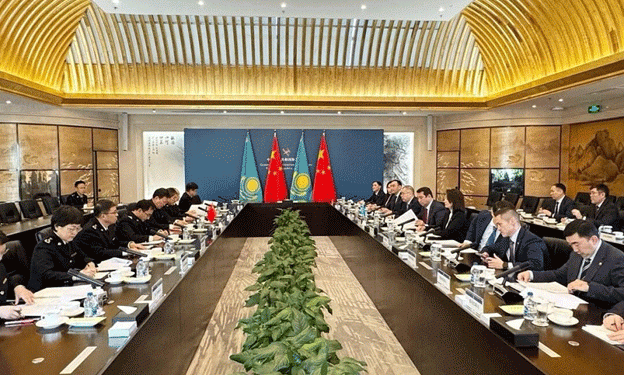Kazakhstan has proposed a strategic partnership with China’s state-owned COFCO Corporation to establish a “green corridor” for exporting agricultural products. This plan was introduced during high-level negotiations in Beijing, involving Kazakhstan’s Ministry of Agriculture and COFCO representatives. The corridor is part of a proposed three-year agreement to facilitate the streamlined shipment of grains and oilseeds, including high-protein wheat, a staple of Kazakhstan’s agricultural exports.
China’s growing demand for organic and high-quality food products has positioned Kazakhstan as a vital trade partner. In 2023, bilateral agricultural trade between the two nations surged to $1.3 billion, with Kazakh exports accounting for $1 billion—a 184% increase from the previous year. COFCO, a significant player in China’s food supply chain, has already imported 50,000 tons of Kazakh wheat this year, underlining the potential for expanded collaboration.
One of the primary goals of this partnership is to overcome logistical and regulatory challenges at the border, which have previously hindered smooth trade operations. To address these issues, a joint working group has been established, including representatives from Kazakhstan’s Ministry of Agriculture and COFCO, to devise solutions and improve coordination.
Beyond grain exports, Kazakhstan and China are also exploring broader agricultural collaboration. China has expressed interest in additional Kazakh exports, such as oilseeds, sunflower oil, and flaxseed oil. These products align with China’s policy of diversifying its food import sources while ensuring food security for its population.
From Kazakhstan’s perspective, this initiative supports its broader strategy of enhancing export competitiveness. With plans to increase annual agricultural exports to 3 million tons by 2025, the green corridor project represents a critical step. It promises not only to strengthen trade ties with China but also to open new markets in Southeast Asia and beyond.
The proposed green corridor between Kazakhstan and China reflects a strategic alignment of mutual interests. For Kazakhstan, it offers a pathway to diversify and expand its export markets while addressing logistical hurdles. For China, it secures access to high-quality, sustainable agricultural products. As the agreement takes shape, it is poised to transform regional trade dynamics, fostering economic growth and agricultural innovation.
Error





